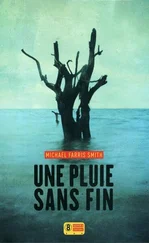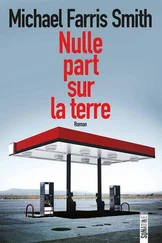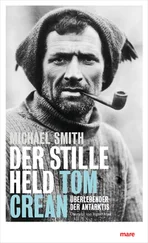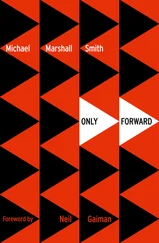He put his hand in his jeans and pulled out a small cardboard container, about the size of a pack of cigarettes. He held it up.
‘What’s that?’
Nash opened it. The interior had been padded with cotton wool. Lying in the centre was a tiny box. He removed this and held it up for the old man to see.
The man leaned forwards and squinted, seeing an intensely shiny black surface over most of the box, apart from the lid. There, someone had spent a great deal of time painting a detailed winter scene: pine trees and snow and a horse-drawn sleigh with two people on it, wrapped in old-fashioned coats and furry hats. It was so precise that it looked as if it must have been painted with a brush of a single hair, white and green with highlights of intense red and purple and dots of gold, all the more striking for the blackness of the box. It was extraordinarily shiny, too, as if coated with many coats of colourless varnish. In its detail and lustre it reminded the old man of something else, a far larger box he had once commissioned to be built.
‘And?’
‘Old guy who lives a couple blocks from here,’ Nash said, putting the tiny box carefully down on the floor. ‘I heard him talking in the store. His wife’s dying of cancer. Her mother was from Russia. The one thing she brought with her from the old country was a box like this. A lacquer box, they call it. It got stolen when this guy’s wife was a kid, but she’s remembered it all these years. Like it stood for her mom, or some shit. So this guy, he knows his wife’s dying, and he’s got cash salted away she doesn’t know about. He’s been saving all these years for the right time, putting a buck away here, fifty cents there. He figures this is the right time. So I overhear him telling all this to the guy behind the counter – who doesn’t give a crap, I mean he really could not care less – telling him that he’s blown this money, seven hundred fifty dollars, on buying one of these on the internet. Spent weeks tracking down a box like the one he’s heard his wife describe all these years. It’s her birthday in a week. He’s going to give it to her then. Or … he was . Until I paid a visit to their house, last Sunday morning when they were at church.’
‘You stole it. Nice.’
Nash smiled. ‘Right. But that’s not it.’
He raised his right foot and paused, closing his eyes as if in supplication, and then brought the heel of his boot down on the lacquer box, smashing it to pieces.
He was quiet for maybe ten seconds, relishing the moment. Then he opened his eyes.
‘ That’s what he likes.’
The old man was motionless, as if listening for something. After a few moments he shook his head. ‘I got nothing,’ he said. He seemed irritated, and something else. Disconcerted, perhaps.
Nash was confused too, having anticipated a very different reaction. ‘What?’
The old man stood there, lips pursed, furrow-browed. Up until this point he’d seemed relaxed, as if their discussion had been quite interesting but no big deal. He didn’t look that way now. He looked unhappy, and thoughtful. He looked serious.
‘What’s up , dude?’
The old man glanced at Nash as though his mind was already on other things. ‘What’s up? I’ll tell you what is up. I like your style, but there’s a problem.’
‘What kind of problem?’
‘A big one. I don’t know who you’ve been sacrificing to, my friend, but he is not the Devil.’
‘Oh yeah? How do you know he’s not?’
‘Because I am,’ the old man said.
He turned to the man in the shadows who was still holding his wallet, held up a hand, and clicked his fingers.
The man exploded.
There was utter silence. None of the men standing there, sprayed though they were with blood and brains and internal organs, said a word or made a sound or moved a muscle. It was so very quiet that it seemed possible they might even have stopped breathing, until they all blinked, in unison.
‘Don’t try that at home,’ the old man said, bending down to pick up his wallet from where it had landed conveniently by his feet. ‘Otherwise, keep up the bad work.’
He walked out into the night, purposefully, a man who’d determined that it was finally time to get down to business.
The flight was OK except that a woman from the airline kept coming to check on Hannah, talking to her like she was five years old. At first, Hannah had been glad. She was a little nervous at the prospect of the journey, never having flown by herself (though also excited, as it would be the most compelling proof yet that she was, in fact, extremely grown up). Her dad was there to see her off, of course, but he still had not shaved and his voice was quiet and he was blinking an awful lot. He hugged her tightly when it was time for her to get on the plane and stood watching her walk down the corridor until she had to turn the corner and couldn’t see him any more. A kind-looking old lady with long grey hair told her not to worry, she’d see him again soon. Hannah didn’t think it was any of the lady’s business, but said thank you anyway.
She didn’t like to think of her dad driving back over the hill to their house and walking into the silence all by himself. So she did not, and read her book instead.
The flight passed, as they all do, eventually.
The first person she saw when she walked out of arrivals in Seattle was Granddad, standing with his hands in his corduroy trousers, chubby and pink-faced and irrevocably bald. His face lit up when he saw her, and she ran over and buried her face in his sizable stomach.
‘It’s OK,’ he said, putting his arms around her, smelling as always of peppermint. ‘Everything will be OK.’
Half an hour later they were in Granddad’s car on their way out of Tacoma. It was, Hannah believed, the same car he’d had when he came to visit in Santa Cruz – though it was hard to be certain. He seemed to delight in changing them regularly, and in picking vehicles in colours that had no name, somewhere on the spectrum between brown and green and sludge, hues of which it was impossible to imagine someone ever thinking: Ooh, yes, let’s make it look like that . Their shape was also hard to describe beyond that they looked like cars, the kind a small boy might draw. The sole constant – and this is what made it tough to tell if this was a new one or the same old one – was that the inside would be flamboyantly, outrageously untidy.
When Granddad opened the trunk to stow Hannah’s bag he had to move a birdcage, two bags of old alarm clocks, a broken DVD player, quite a lot of shoes, a length of green hosepipe, two large metal springs made of copper, and a stuffed raccoon. Hannah wasn’t sure whether she was allowed by law to ride in the front of the car with him, but there wasn’t any choice as the back seat was full of too many things to list unless you had a piece of paper ten feet long, a pencil, and a sharpener.
From time to time Granddad would make odd sculptures, one of which – apparently fashioned from the insides of a small television, some watches, a toy mouse, and other things she didn’t have names for – graced the bookshelf in Hannah’s bedroom. She had no idea what it was supposed to be but she liked it anyway. He had given her parents several such works in the past, too, but Hannah’s mother had evidently decided they would be seen to their best advantage in the garage.
When she sat in the passenger seat Hannah had to angle her legs because there was an ancient suitcase in the footwell. It was made of leather and had a dusty dial on the front. She asked, politely, if it was possible to move it.
‘I’m afraid not,’ Granddad said. ‘It has to be there or the car won’t go.’
Читать дальше












